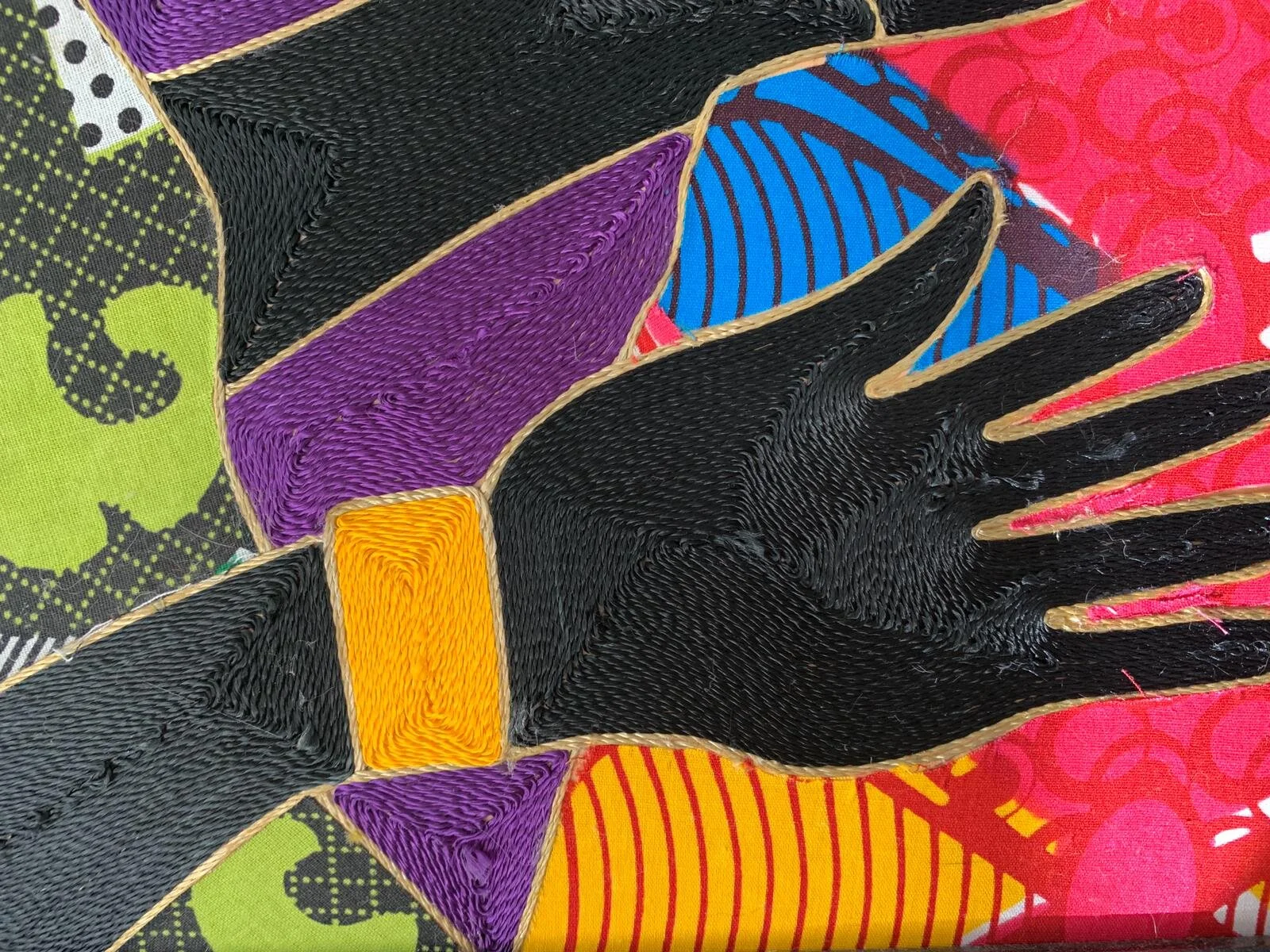Black, Brown and in Love: Interracial Relationships between Africa and India
/Image by Bright Ackwerh @brightackwerh
This panel took place on March 12th, (10-11:30am EST / 3-4.30pm GMT). It featured David Amponsah, Tracy Mensah, Shobana Shankar, and Meera Venkatachalam, who spoke about about the historical and contemporary inter-racial relationships between Africans and Indians. This panel was co-organised with Everyday Orientalism and chaired by Girish Daswani.
Abstract
Namaste Wahala (2021) is a Netflix film set in Nigeria, which stars Nigerian and Indian actors and draws on the popularity of Nollywood and Bollywood, both extremely popular forms of entertainment in many African countries. Produced and directed by a female Indian-Nigerian (Hamisha Daryani Ahuja), Namaste Wahala seeks to bring together the seemingly disparate worlds of India and Nigeria through a fairylike tale on the cross-cultural opportunities for love, romance, and marriage. The movie raises further questions about the history of Africa-India and the existing opportunities that Indians and Africans may have when it comes to cross-cultural exchange, social or romantic encounters, and inter-racial relationships. How have these two nationalities come together and in what ways? What is it like for Africans in India or Indians in Africa? This panel specifically seeks to contextualize Namaste Wahala within the longer history of the South Asian presence in West Africa and within the contemporary world where social class, religion, caste, and race matter.
Our Panelists include:
David Amponsah
David Amponsah is Presidential Assistant Professor of Africana Studies at the University of Pennsylvania. He received his PhD from Harvard University in 2015 where he specialized in African Religious History. He is currently working on two book projects. The first, “The Fetish State” examines the role of indigenous priests and shrines in the formation of colonial Ghana. The second, “Enchanted Geography,” is a social and cultural history of how and why Ghanaians and Nigerians came to construct India as a reservoir of potent supernatural powers beginning in the early part of the twentieth-century. His work has appeared in the Journal of Africana Religions and is forthcoming from the International Journal of African Historical Studies.
Tracy Lucky Mensah
Tracy Mensah is a Phd Candidate at Georgetown University specialising in new economic histories in West Africa. Currently, she is working on her dissertation topic that explores Indian mercantilism amidst colonial rule, decolonization, and independence in Ghana to situate Indians and their commercial activities within contemporary understandings of the social, economic, and cultural history of retail businesses in Africa. Tracy does this mostly through an examination of Indian owned department stores in the twentieth century.
Shobana Shankar
Shobana Shankar’s work focuses on cultural history and politics in West Africa and Africa-Indian encounters. She is finishing a book, An Uneasy Embrace: Africa, India and the Spectre of Race (Hurst, 2021) that examines how Africans and Indians have attempted to understand and negotiate their complicated relationships in spheres like religion, science, and education where postcolonial peoples have sought autonomy from Euro-American power. She is also author/co-editor of three books: Religions on the Move: New Dynamics of Religious Expansion in Globalizing World, with Afe Adogame (Brill, 2013); Who Shall Enter Paradise: Christian Origins in Muslim Northern Nigeria, c. 1890-1975 (Ohio University, 2014); and Transforming Religious Landscapes in Africa: The Sudan Interior Mission, Past and Present (Africa World Press, 2018). Her most recent publications focus on Ghanaian Hinduism and African-Indian photography and the creation of racial intimacy.
Meera Venkatachalam
Meera Venkatachalam is currently a Postdoctoral Fellow at the Centre for African Studies, University of Mumbai. She initially trained as an anthropologist in West Africa. She now works on mainly on development co-operation; migration, and mobile religion in the Global South. Recent co-edited publications include: ‘Common Threads: Fabrics made in India for Africa’ (ASCL, 2020); and ‘India-Africa partnerships for Food Security and Capacity Building’ (Palgrave MacMillan, 2021).
References
Akyeampong, Emmanuel K. 2006. “Race, Identity and Citizenship in Black Africa: The Case of the Lebanese in Ghana”, Africa 76(3): 297-323.
Daswani, Girish 2021. This is not Namaste Wahala: On Silences, (His)Stories and Ghana’s Oldest South Asian Family, Everyday Orientalism.
Prabhu, Maya. 2017. “African victims of racism in India share their stories”, Al Jazeera
Roy, Tirthankar 2013. “Africa is part of South Asia just as South Asia is part of Africa”, LSE Blog.
Shankar, Shobana. 2020. “A Tale of Two Gandhis in Ghana,” Black Ambassadors of Politics, Religion and Jazz in India: Afro-South Asia in the Global African Diaspora vol. 3, edited by Omar Ali, Kenneth X. Robbins, Beheroze Schroff, and Jazmin Graves (UNC Greensboro/Ahmedabad Sidi Heritage and Education Center), 49-55.





